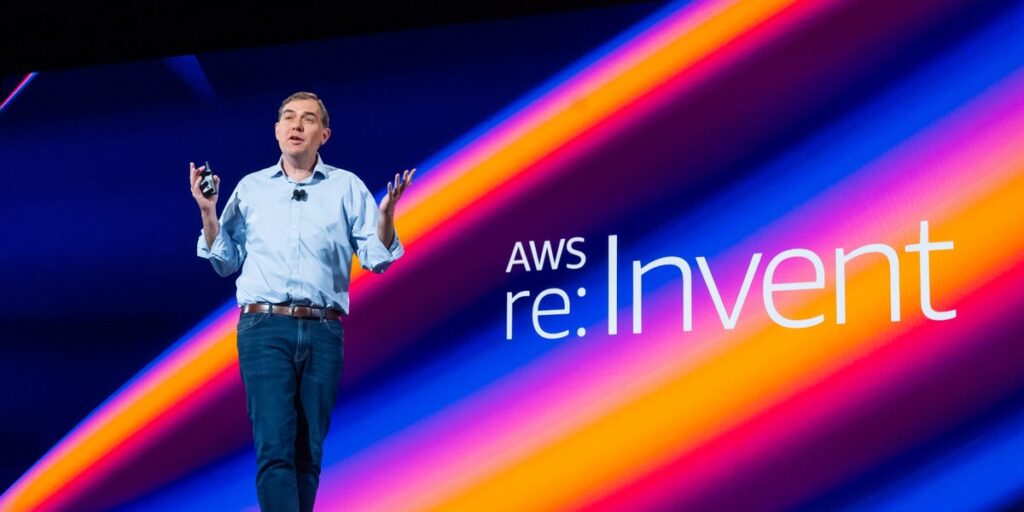Amazon Web Services wants its AI applications to gain more traction organically, without leaning heavily on sales teams.
Rivals such as Cursor and Windsurf have seen better grassroots adoption than AWS’s coding assistant Q Developer, while larger enterprise customers tend to favor Microsoft’s GitHub Copilot, according to an internal Amazon document obtained by Business Insider.
Q Developer did manage to see “occasional successes” selling directly to senior executives, but such wins required intensive sales involvement, the document explained.
To close the gap, AWS recently launched Kiro, an AI coding assistant designed to attract more self-serve developers.
“Until recently, AWS did not have a compelling product for the ‘grassroot’ cohort,” the document acknowledged.
The assessment highlights how the dynamics have changed for AWS in the age of AI. In its early years, AWS thrived because many developers adopted its cloud services on their own, spreading usage organically rather than through top-down mandates. By contrast, Q Developer’s difficulty gaining traction through word of mouth suggests AWS has been unable to recreate that playbook in at least one corner of its AI portfolio.
Sales debate
It also underscores a long-running debate in software sales: whether to target senior executives directly or build momentum from individual users before scaling into larger organizations.
Historically, software vendors won deals by selling to top decision-makers who signed broad, companywide contracts. But the original cloud success of AWS and viral apps such as Slack and Zoom has shifted attention toward a bottom-up model that starts with small teams and grows from there. In the AI era, viral adoption has become even more crucial, as evidenced by the explosive organic growth of services including ChatGPT and Cursor.
An AWS spokesperson told BI that all sales channels are important and many developers use AWS prior to their employers getting onboard. The spokesperson added that Q Developer’s usage has increased “9-fold per person” this year.
“We have the pleasure of serving an incredibly diverse community of builders with different technology needs and we’re focused on meeting customers wherever they are on their journey, whether through individual developer adoption or enterprise-wide implementation,” the spokesperson said.
More viral adoption
The Q applications play a central role in AWS’s AI ambitions, having headlined the company’s 2023 re:Invent conference and serving as an umbrella brand for much of its AI portfolio. AWS is leaning on them to convince Wall Street it’s not slipping in the AI race, as Microsoft and Google — armed with deeper application portfolios — steadily gain ground.
So far, Q Developer brings in only a fraction of the revenue generated by rivals Cursor and Windsurf, as Business Insider previously reported.
Change may be coming for the Q Business AI chatbot as well. AWS plans to shorten the product’s sales cycle by shifting toward a user-led adoption model, once it upgrades to a new AI agentic platform internally codenamed Quick, according to another internal document seen by BI.
Of course, virality isn’t something a company can manufacture, and the traditional top-down sales model remains vital for many software makers, particularly in regulated industries. There are also early signs of some of the viral “vibe coding” startups losing steam lately.
But in AI, word-of-mouth and strong user communities have become more important as developers and business users increasingly drive purchasing decisions, said Matt Murphy, an investor at Menlo Ventures.
“We are definitely seeing in AI tooling that classic marketing and sales techniques are less effective,” Murphy told BI.
‘Enterprise-ready’ features
AWS has seen encouraging early feedback on Kiro since its July debut, though users have also pressed for more robust controls, one of the documents stated. To address this, the company plans to prioritize “enterprise-ready” features to accelerate Kiro’s adoption among corporate clients, it added.
Skepticism lingers inside AWS over Q’s future. Some employees told BI that AWS doesn’t have a strong track record in business applications, and the company’s true strengths lie in infrastructure, such as compute and storage, rather than end-user software.
AWS’s spokesperson told BI that it’s “not correct” to say that AWS hasn’t been successful outside its core infrastructure services, highlighting products such as Bedrock, Connect, and SageMaker.
“We are the top leader, or leader of leaders, on all calibrations of measurement in hundreds of third-party evaluations each year, and no one else is even close,” the spokesperson said.
Wall Street analysts, however, echo parts of the employee concerns. Colin Sebastian of RW Baird said the absence of a robust application offering could represent a strategic vulnerability for AWS, even though he expects Amazon’s cloud unit to see faster growth going forward.
“The AWS platform has a less-developed application layer to help drive more enterprise AI adoption, which may be part of why Google and Microsoft have shown greater acceleration,” Sebastian said.
Have a tip? Contact this reporter via email at ekim@businessinsider.com or Signal, Telegram, or WhatsApp at 650-942-3061. Use a personal email address, a nonwork WiFi network, and a nonwork device; here’s our guide to sharing information securely.
Read the full article here


